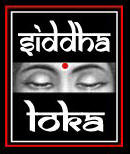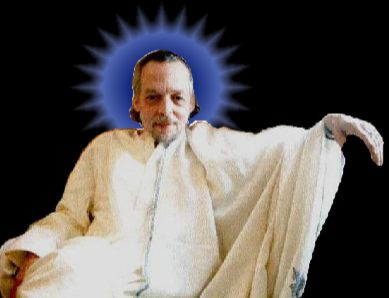|
|
|
|
|
|
|
|
Bhakti Yoga is perhaps the easiest and simplest yoga - and the most profoundly effective - as it dispenses with the essentially abstract and impersonal aspects of God as the Absolute, and focuses instead on a personal God with attributes. It is also more pragmatic than other yogas in that it is firmly based on experience rather than explanation - for all must be experienced before it becomes effective.
All is in God, for God is in All. Yet we are ensnared by ignorance (avidya) and in the coils of illusion (maya) - release is realisation of godhead and liberation from maya, and, by Bhakti-marga (devotion to God), can be achieved in one lifetime.
You are already what you will become - but you need someone, or something, to help you realise it. The Bhagavadgita (6.29) says that through unswerving devotion to God the devotee 'perceives the common essence in all things ... the Self in all things and all things in the Self'.
Lose your self in God, and you find your Self in God.
Bhakti-Marga helps provide a focus ('one-pointedness') to the devotee. Single-minded concentration on, and love of, God - however visualised - purifies the heart, sanctifies actions, and enlightens the mind.
But all thoughts, actions, and intentions, must be altruistic - not for the sake of hope of reward, or success, or even the fear of failure - then the devotee becomes rooted and nourished in the Beloved in whom all desires are fulfilled because all true desire is from God, and for him alone.
Whatever the devotee loves is served joyfully, and the greater the love the more intense and 'one-pointed' the devotion until the lover merges with the Beloved - realisation and liberation. God can truly be apprehended only experientially. Let go - and let God be All.
Krsna says (Bhagavadgita 12,8) 'Fix your mind on me alone, concentrate your intellect on me; henceforth you ... dwell in me alone'.
Even so, it is only by God's grace (prasada) that the devotee finds realisation of godhead and liberation from maya. It is not merit through good works, knowledge, or even devotion, but the gift of God freely given by him to whomsoever seeks him.
The love of God is its own reward - its outward manifestation is kindness, gentleness, and charity (love) to all and concern for, and care of, all creatures and for all creation - for the way of devotion is universal and open to all, regardless of race, caste, religion, or culture, as no one, man or woman, rich or poor, high or low, young or old, can be denied the right to love God.
Ramananda said 'Let no man ask a man's caste or sect. Whoever adores God is God's own'.
Whatever, or whoever, a devotee chooses to love and worship as God, is God to that devotee - whether it be man, woman, child, animal, tree or stone - and should not be criticised, for God's grace to humanity is plainly seen in his many incarnations (avataras) and emanations (vyuhas) appearing in physical form to aid both man and all creation toward realisation and liberation.
'Whatever devotee seeks to worship, whatsoever divine form with fervent faith, I, verily, make that faith unwavering ... thus shalt thou be released from the bonds of actions, fair or foul of fruits; and, liberated ... thou shalt attain to me'.
sathyam nasti paro dharma!
There is no religion higher than Truth!
"We Hindus do not merely tolerate, we unite ourselves with every religion, praying in the mosque of Mohammedan, worshipping before the fire of the Zoroastrian, and kneeling to the cross of the Christian. We know that all religions alike, from the lowest fetishism to the highest absolutism, are but so many attempts of the human soul to grasp and realise the Infinite. So we gather all these flowers, and, binding them together with the cord of love, make them into a wonderful bouquet of worship."
"'Universal brotherhood! We are all equal, therefore let us make a sect.'
As soon as you make a sect, you protest against equality, and equality is no more. Mohammedans talk of universal brotherhood, but what comes out of that in reality? Why, that anybody who is not a Mohammedan will not be admitted into the brotherhood; he will more likely have his throat cut. Christians talk of universal brotherhood; but anyone who is not a Christian must go to that place where he will be eternally barbecued."-Swami Vivekanand
Selections from The Complete Works of Swami Vivekanada





